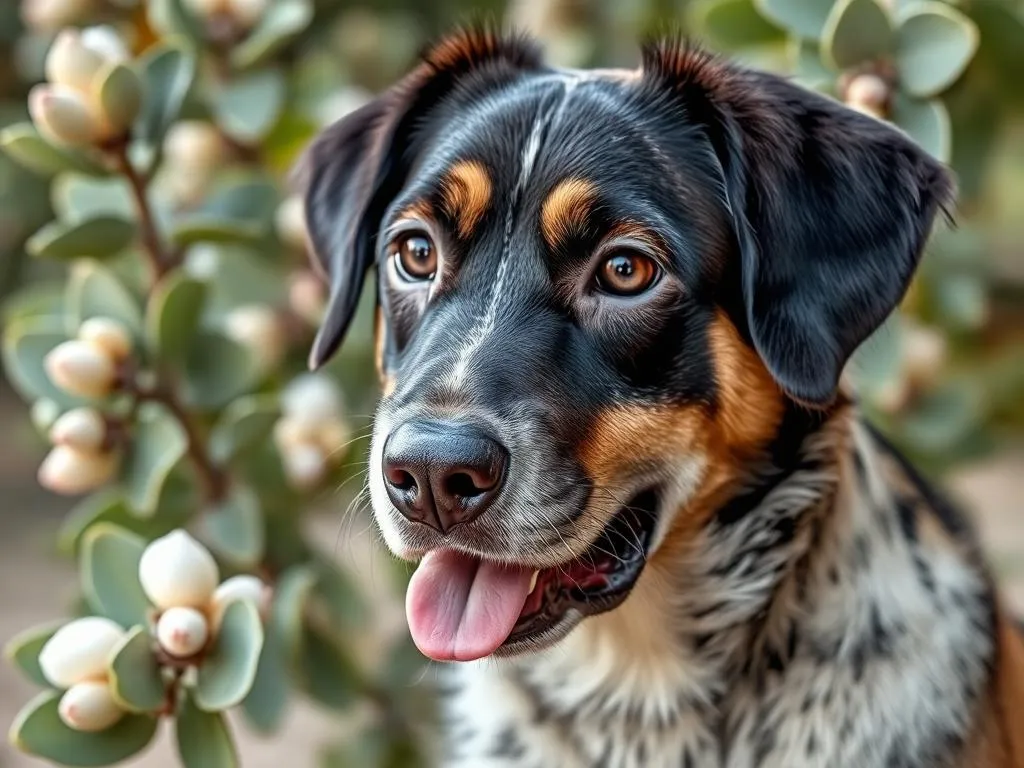
Introduction
As pet owners, ensuring the health and safety of our furry companions is of utmost importance. With the rise of natural remedies and holistic approaches to pet care, many wonder about the potential benefits and risks of using various plants and essential oils around their dogs. One such plant that often comes up in discussions is eucalyptus. In this article, we will delve into the effects of eucalyptus for dogs and provide a comprehensive vet answer on whether it’s safe to use around your pets.
Understanding Eucalyptus
What is Eucalyptus?
Eucalyptus is a genus of flowering trees and shrubs native to Australia, known for their aromatic leaves and distinctive scent. There are over 700 species of eucalyptus, with some of the most common types used in products being Eucalyptus globulus (blue gum), Eucalyptus citriodora (lemon eucalyptus), and Eucalyptus radiata. Historically, eucalyptus has been used in herbal medicine for its antiseptic and anti-inflammatory properties, making it a popular choice for various applications.
Eucalyptus in Household Products
Eucalyptus is widely incorporated into household products, ranging from essential oils and cleaning agents to ointments and air fresheners. The plant’s pleasant fragrance and purported health benefits have contributed to its popularity across numerous industries. Many people use eucalyptus essential oil for aromatherapy, believing it to have calming effects. However, while eucalyptus may offer benefits to humans, its effects on our canine companions are not as clear-cut.
Eucalyptus and Dogs
Potential Benefits of Eucalyptus for Dogs
Some pet owners advocate for the use of eucalyptus due to its potential antimicrobial properties. It has been suggested that eucalyptus may help improve a dog’s coat condition and repel fleas and ticks. Additionally, some owners claim that eucalyptus can aid in respiratory health, providing relief from congestion when used in a diffuser or steam inhalation. However, these claims lack substantial scientific backing, and it’s essential to approach them with caution.
Risks of Eucalyptus for Dogs
While there may be some perceived benefits, the risks associated with eucalyptus for dogs cannot be overlooked. Eucalyptus contains compounds such as eucalyptol, which can be toxic to pets. The ingestion of eucalyptus leaves or concentrated oils can lead to a range of symptoms, including:
- Vomiting
- Diarrhea
- Lethargy
- Weakness
- Difficulty breathing
In severe cases, eucalyptus poisoning can be life-threatening. Several case studies have highlighted instances where dogs have suffered adverse reactions after exposure to eucalyptus, underscoring the importance of understanding the risks involved.
Vet Perspectives on Eucalyptus for Dogs
Common Vet Recommendations
Most veterinarians advise against using eucalyptus around dogs. While the plant may have some benefits for humans, its safety for pets remains questionable. Vets typically recommend avoiding eucalyptus essential oils, especially in concentrated forms, as dogs are more sensitive to these substances than humans. Instead, they suggest using dog-safe alternatives that pose no risk to your pet’s health.
Case Studies and Experiences
Veterinary professionals have encountered various cases where eucalyptus was misused. One common scenario involves pet owners using eucalyptus oil in diffusers or sprays, believing it to be a natural solution for flea control or respiratory issues. Unfortunately, this often resulted in dogs exhibiting symptoms of poisoning, leading to emergency visits. These experiences highlight the importance of consulting a veterinarian before introducing any new products into your dog’s environment.
Safe Alternatives to Eucalyptus
Natural Remedies for Dog Health
For pet owners seeking natural remedies, there are several safe alternatives to eucalyptus. Essential oils like lavender and chamomile are often regarded as safe for dogs and can provide calming effects without the associated risks of eucalyptus. Additionally, natural flea and tick prevention methods, such as diatomaceous earth or certain herbal blends that do not include eucalyptus, can be effective.
How to Choose Safe Products for Pets
When selecting products for your pets, it’s crucial to read labels carefully and understand ingredient safety. Look for products specifically formulated for dogs, as they are less likely to contain harmful substances. Consulting with a veterinarian before introducing new products into your pet’s routine is essential for ensuring their health and safety.
Conclusion
In summary, while eucalyptus may offer some benefits for humans, the potential risks it poses to dogs far outweigh these advantages. Symptoms of eucalyptus poisoning can be severe, and many veterinarians recommend avoiding its use around pets altogether. Instead, pet owners should prioritize safe, vet-approved alternatives that promote their dog’s health without the associated risks. Remember, responsible pet ownership includes being informed about the products we use around our furry friends and consulting with professionals for personalized advice.
FAQs
Can eucalyptus oil be used topically on dogs?
No, eucalyptus oil should not be used topically on dogs due to the risk of skin irritation and potential toxicity.
What should I do if my dog ingests eucalyptus?
If you suspect your dog has ingested eucalyptus, contact your veterinarian immediately for guidance. Symptoms of poisoning may require urgent medical attention.
Are there any safe eucalyptus products for dogs?
Currently, there are no eucalyptus products that are universally considered safe for dogs. Always consult your vet before using any product containing eucalyptus.
How can I safely use essential oils around my pets?
When using essential oils around pets, choose oils that are known to be safe for dogs, such as lavender or chamomile, and always diffuse them in a well-ventilated area. Avoid concentrated forms and consult your veterinarian for specific recommendations.
By prioritizing your dog’s health and well-being, you can ensure a happy, safe environment for your loyal companion. Always consult a veterinarian for advice tailored to your pet’s unique needs and circumstances.









